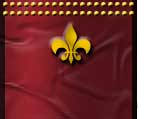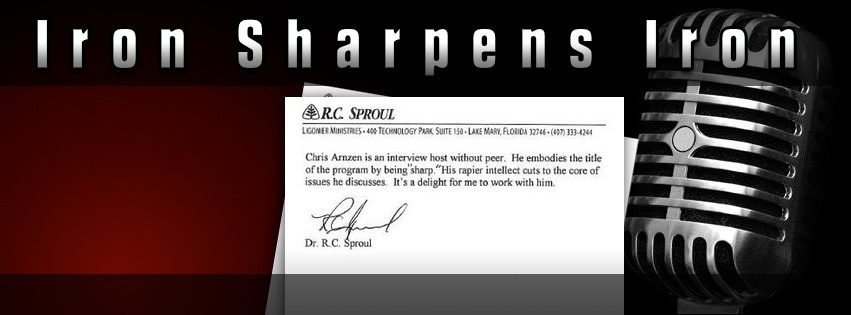




 |
|||||
 |
THE HARMONY OF THE DIVINE ATTRIBUTES: In the Contrivance and Accomplishment of Man's Redemption
William Bates, with New Introduction by Dr. Joel Beeke![]()
"William Bates' The Harmony of the Divine Attributes in the Contrivance and Accomplishment of Man's Redemption is in a class of books which few are writing in our day. Here is a thorough opening of the central principles of the Gospel--without the corrosive errors so often found in modern presentations of this glorious theme, and well-delivered in a way that is God-centered and God-honoring." - Dr. Robert Martin, Emmanuel Reformed Baptist Church, Seattle, Washington; Editor of Reformed Baptist Theological Review![]()
"It would be difficult to mention any single work in which the glorious plan of man's redemption is more fully and clearly exhibited, than in Dr. Bates' Harmony Of The Divine Attributes. The writer recollects with pleasure and gratitude, that when he was first led to attend with interest to theological subjects, this work fell into his hands, and was read with' profit and delight; and now, after the lapse of forty years, he has again perused it with unmingled approbation ; and he can scarcely conceive of any better method of exhibiting the doctrines of the gospel, than that which is here pursued.![]()
It is no small recommendation of this work, that it will be found well adapted to Christians of all evangelical denominations. The controversial spirit is excluded, and the precious truths of the Bible are presented in a manner which will command the approbation of all who possess a truly spiritual taste. Many doctrines, it is true, are here brought forward, which have often occasioned keen and acrimonious controversy; but in the hands of our author they have no other than a peaceful and practical bearing." - Archibald Alexander![]()
"Many of the ancient and modern divines have written of this noble argument, from whom I have received benefit in the following composure; but none, as I know, hath considered all the parts together, and presented them in one view. There still remains a rich abundance for the perpetual exercise of our spirits. The eternal word alone was able to perfect all things by once speaking. Human words are but an echo that answers the voice of God, and cannot fully express its power, nor pass so immediately through the sense to the heart, but they must be repeated. May these discourses be effectual to inflame us with the most ardent love to our Saviour, who ransomed us with the invaluable price of his own blood; and to persuade us to live for heaven, the purchase of that sacred treasure, I shall forever acknowledge the divine grace, and obtain my utmost aim." - from the Author's Preface![]()
"The Harmony of the Divine Attributes in the Redemption of Man has always been one of the most popular parts of Dr. Bates' 'works; it embraces all points essential to the gospel; exhibits the same amiable spirit as that which breathes through the whole of his writing; and is at once calculated, it is presumed, to advance the interests of religion in general, and to confirm and edify the individual Christian. Besides, a volume of this size may be procured by many, whose circumstances place the whole works beyond their reach." - William Farmer, Editor of 1815 edition![]()
TABLE OF CONTENTS![]()
Chapter 1 - Introduction on the Condition of Man at Creation![]()
Chapter 2 - The Fall of Man![]()
Chapter 3 - The Corruption of Human Nature![]()
Chapter 4 - The Moral Impotence of Man![]()
Chapter 5 - The Divine Wisdom in Redemption![]()
Chapter 6 - Practical Inferences from The Preceding![]()
Chapter 7 - The Causes and Unreasonableness of Unbelief![]()
Chapter 8 - The Freeness of the Divine Mercy in Redemption![]()
Chapter 9 - The Greatness of the Divine Mercy in Redemption![]()
Chapter 10 - Divine Mercy is Magnified in the Excellency of the State to which Man is Advanced in Redemption![]()
Chapter 11 - Practical Inferences from The Preceding![]()
Chapter 12 - The Justice of God in Redemption: Part One![]()
Chapter 13 - The Justice of God in Redemption: Part Two![]()
Chapter 14 - The Justice of God in Redemption: Part Three![]()
Chapter 15 - Practical Inferences from The Preceding![]()
Chapter 16 - The Holiness of God in Redemption![]()
Chapter 17 - The Perfection of the Laws of Christ![]()
Chapter 18 - The Example of Christ and the Gift of the Holy Spirit![]()
Chapter 19 - Practical Inferences from The Preceding![]()
Chapter 20 - The Power of God in Redemption: Part One![]()
Chapter 21 - The Power of God in Redemption: Part Two![]()
Chapter 22- Practical Inferences from The Preceding![]()
Chapter 23 - The Truth of God in Redemption ![]()
A DOZEN REFORMED CLASSICS![]()
N3![]()
SGPC 10S22![]()
NOW AVAILABLE TO SHIP![]() SGCB Price: $15.00 (list price $28.00)
SGCB Price: $15.00 (list price $28.00)
NEARLY 50% OFF![]()
Additional Information
• New Introduction
| New Introduction |
William Bates (1625-1699) was one of the most popular and esteemed preachers among the Nonconformists; a master of the Puritan plain style of preaching, his stress on piety earned him the name "silver-tongued." Born in November 1625, he was the son of William Bates, gentleman of St.. Mary Magdalene parish, Bermondsey, Surrey. He graduated from Queen’s College with a Bachelor of Arts degree in 1645 and a Master of Arts degree in 1648. The following year he became vicar of Tottenham, Middlesex, and a few years later succeeded William Strong as vicar of St. Dunstan-in-the West. Like other Puritans, Bates often lectured at the famous morning exercises at Cripplegate Church.
According to Richard Baxter, Bates played a major role in negotiating for the restoration of Charles II. As a reward, he was appointed royal chaplain in 1660. That same year he was appointed as a commissioner for the approbation of ministers by the Rump Parliament and was given a doctorate in divinity from Cambridge University by royal mandate. The following year he represented the Presbyterians as a commissioner at the Savoy Conference, of which one purpose was to review public liturgy. That included pointing out weaknesses in the Book of Common Prayer.
Bates’s first wife died young, as did his first daughter. At age thirty-six, he married Margaret, 21-year-old daughter of Edward Gravenor, gentleman of St. Giles Cripplegate. She outlived him by a generation.
In 1662, Bates was one of 2,000 ministers ejected by the Act of Uniformity. Yet he did not take offense. In his farewell sermon to the St. Dunstan’s church, he made no mention of the coming ejections, other than to say rather mildly in his conclusion that his Nonconformity was motivated only by his fear of offending God. He then added, "If it be my unhappiness to be in an error, surely men will have no reason to be angry with me in this world, and I hope God will pardon me in the next" (Oxford DNB, 4:327).
Bates labored for the next ten years in a variety of ways, often with men like Thomas Manton, Edmund Calamy, Richard Baxter, for the inclusion of Nonconformists within the Anglican church and for toleration of other churches. On two occasions, he addressed William III and Mary on behalf of his fellow Nonconformists. All of these efforts remained largely fruitless, however, for Charles never fulfilled his promises to work toward nonconformist inclusion.
After his ejection, Bates often preached in the vicinity of St. Dunstan’s, most commonly at the house of the countess of Exeter and in a room over Temple Bar Gate, beside his old church. From 1669 onward he apparently served as one of the lecturers at a dissenting congregation at Hackney. In 1672, he was licensed as a Presbyterian teacher and was appointed to lecture at Pinner’s Hall (later called the Ancient Merchants lecture). When Daniel Williams was expelled from this lectureship in 1694, Bates surrendered his lectureship as well and founded the Salters Hall lecture, where he drew large crowds.
Throughout the last decades of his life, Bates had several brushes with the authorities, including at least three fines for holding conventicles, notwithstanding his irenical character, mild manner of preaching, growing reputation as a respectable scholar, and friendships with leading Anglican authorities, such as Archbishop Tillotson. Bates remained a leading Puritan until the end of his life, often being invited to preach at the funerals of close Puritan friends, including Richard Baxter, Thomas Manton, Thomas Jacomb, and David Clarkson.
Bates died in Hackney on July 21, 1699. His funeral sermon, preached by John Howe, a close friend of more than forty years, was a rich testimony to his godly life and diligent study. His excellent library, purchased by Daniel Williams, helped establish the Dr. Williams’s Library, now situated at Gordon Square, London.
Bates’s writings were first collected in a 1700 folio edition; in 1815, they were printed in four volumes as The Complete Works of William Bates. Sprinkle Publications reprinted them in 1990.
All of Bates’s writings convey good scholarship, wide reading, and careful writing. John Howe called Bates a "devourer of books," and one who yearned to study about God and set forth His love and mercy: "Into what transports of admiration and love of God, have I seen him break forth," Howe said (Works of Bates, 1:xviii). That comes to the fore in Bates’s most frequently reprinted book, The Harmony of the Attributes of God (1674). His chapters on the mercy of God are some of the finest ever written on this precious subject. Here are four practical inferences Bates draws from reveling in the infinity of divine love: "(1) Redeeming love deserves our highest admiration and most humble acknowledgments. (2) The love of God discovered in our redemption, is the most powerful persuasive to repentance. (3) The transcendent love that God hath expressed in our redemption by Christ, should kindle in us a reciprocal affection to him. (4) What an high provocation is it to despise redeeming mercy, and to defeat that infinite goodness which hath been at such expense for our recovery?" (1:329-40).
Some consider Bates’s greatest work to be The Four Last Things (1691), a short, poignant treatment on death, judgment, heaven, and hell. His 50-page treatise On Divine Meditation is typically Puritan and one of the best in its field, covering the basics of its nature, necessity, time, advantages, rules, and applications - no word wastage here! His other major publications include The Select Lives of Illustrious and Pious Persons, Discourses on the Existence of God, The Immortality of the Soul, The Great Duty of Resignation, The Danger of Prosperity, Sermons on the Forgiveness of Sins, and The Sure Trial of Uprightness. Complete Works includes numerous sermons and several treatises on Christian living, all of which are succinctly written and packed with edifying material. If you are looking for a Puritan who always writes well, is both practical and heavenly, and is never tedious, read William Bates.
-Contributed by Dr. Joel Beeke
